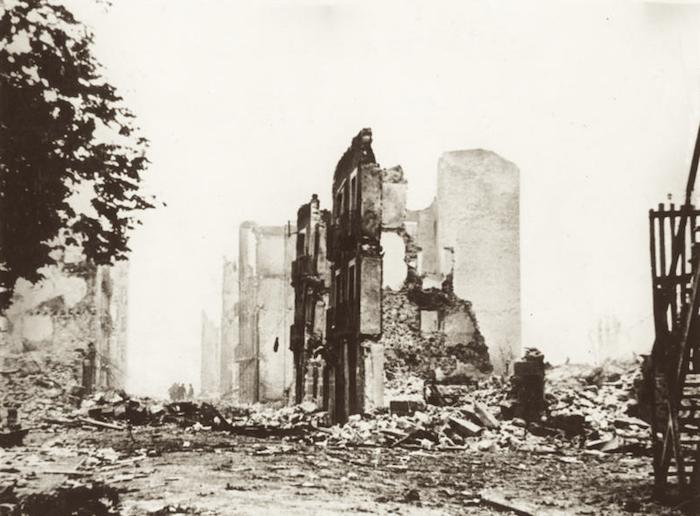In late 1943 and 1944, as my parents recounted, the defensive battles on Estonia's eastern front included Estonian young men. This boosted the confidence of many that the Estonians will be able to stop the Soviet advance of overwhelmingly larger forces. This was reinforced by the Estonian language periodical, ‘Malevlane', published in Finland, that a third power will be coming to Estonia's assistance, and that England and the USA will be landing forces soon on the shores of Estonia. This bulletin was distributed quite widely in our village in Hiiumaa and found staunch believers there.
In their sad reminiscences, my parents also stressed the fact that they had somehow survived the ruthless foreign rule of the occupying Soviets in 1940-41 and that they would probably not outlast another, indefinite occupation. To think back to that time was deeply painful for them. My mother often recounted how guilty she felt visiting friends and relatives to bid farewell to hem.
In late September the glow from fires were visible in the night sky from the direction of Haapsalu, Pärnu and Tallinn. In our village, Käina, the head of the co-operative store was giving sugar to people, so as not to leave anything for the enemy. The mass escape had started. Many families and individuals from the mainland had travelled to the island of Hiiumaa convinced that all Hiidlased must have sea-going vessdels of some kind making it easier than on the mainland to find boat owners willing to take them aboard. My mother recognized her own teachers from the pedagogical academy in Haapsalu. She offered help to them. She said that it was heartbreaking to watch the young as well as elderly trudging along the dusty country highway in front of our house with resignation and desperation on their faces.
With tears in her eyes she packed our essentials. (Even though I was three and a half, some moments of the journey remained indelibly with me over the years.) Germans officers who had occupied rooms on the second floor of our home knew for what we were preparing but didn't attempt to stop us as they had been ordered to do. (My grandmother owned a large house next to the town hall. It housed a bank office, a store, an insurance agency office, rooms for several families and individuals, guest rooms and was thus chosen as suitable for the staff officers of the German forces. Shortly after we fled, it was destroyed in ensuing battles. This we found from people who found it still possible to flee even after the Soviets had occupied the island.)
My mother and father rode to our beach destination, about seven kilometres away, on bicycles. My father had just been released from the hospital in Kärdla having contracted yellow fever. I was placed on my father's handlebars which I held to stay on the bicycle, with a pillow supporting my seat. At the home of relatives on the way to our point of departure my mother's aunt bid us a tearful farewell. She told us her son Arvo would not be fleeing with us after all. He was exactly my age. We would have been brothers in exile amongst abundant opportunities in the West. Instead, he worked all his life in a collective farm in Hiiumaa.
The boat was hidden in reeds some seven kilometres from home. Grandmother was going there with horse and carriage. The horse showed up in our home village the following day. She had warm winter clothing, food for the passage, some family photo albums that didn't survive the salty water of the Baltic Sea, blankets, silverware which we still have and a mother of pearl handled pistol my grandfather had given her before being lost at sea many years before with all the crew on his own three-master steamer. The vessel was carrying bricks on its way from Riga to somewhere in Belgium. The pistol, my father told me, would have been useless against the enemy, implying it was to be used to avoid being captured.
The small sailboat, hidden from the German authorities had been augmented with a small engine which my father had stolen from a German equipment depot. Our family, myself, father, mother and my widowed grandmother were accompanied by relatives – the five member family of a local schoolmaster. To this was added two other passengers on our passage to Swedish shores in the stormy conditions. At the very least, the over-loaded boat made the journey risky if not dangerous. (To be continued.)
Laas Leivat




